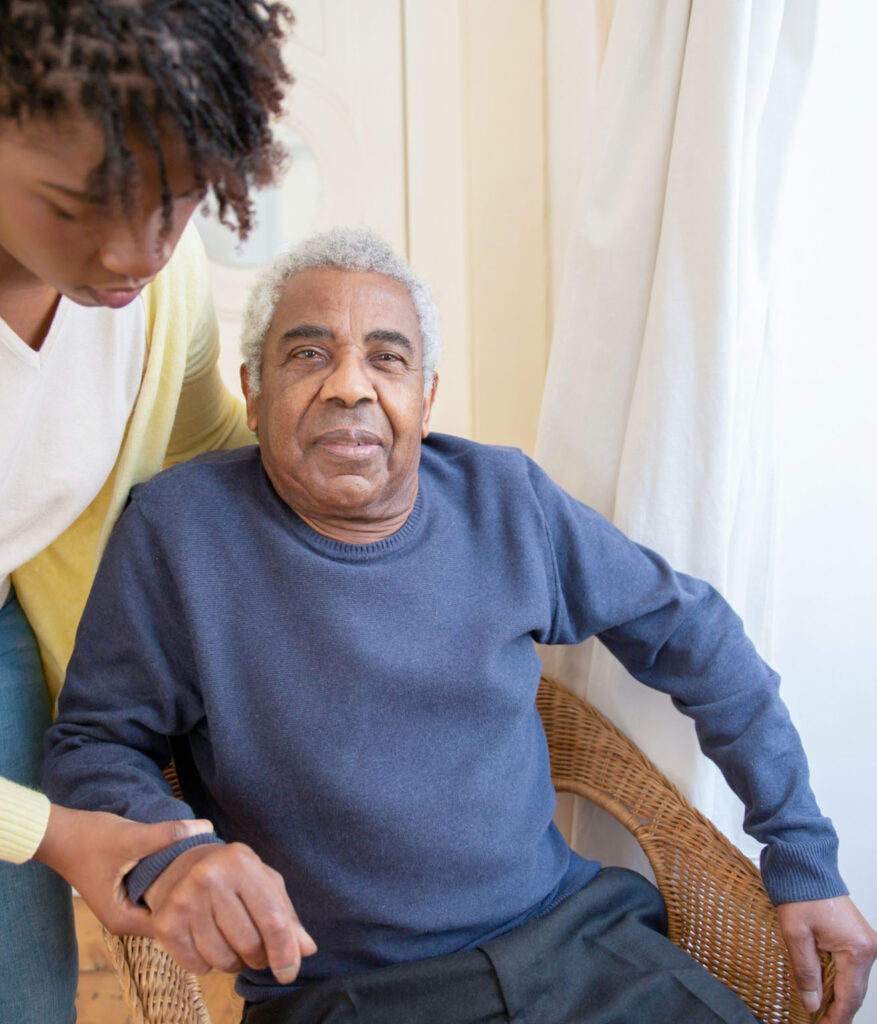What is Palliative Care?
Palliative care is specialized medical care for individuals facing serious illness. It focuses on relieving symptoms, alleviating emotional and spiritual distress, and enhancing quality of life for both patients and their families.
At Lifted Hospice, we often speak with families who are unsure whether they need palliative care or hospice care. While we do not currently provide palliative care, we are honored to serve as a trusted guide—offering education, compassionate conversation, and referrals to trusted palliative care providers when needed.

What exactly is pallative care?
Palliative care is a whole-person, team-based approach that helps people live more comfortably with serious illness. It can begin at any stage of the illness and be provided alongside treatments aimed at curing the disease.
Palliative care may include:
- Pain and symptom management
- Emotional and psychological support
- Help with medical decisions and planning
- Spiritual care, when desired
- Coordination between specialists and care providers
The goal is to provide relief and restore dignity—so patients and families can focus on what matters most.
Who is Palliative Care For?
Palliative care is for anyone experiencing the symptoms or stress of a serious illness, including:
- Cancer
- Heart Failure
- COPD or other lung conditions
- Neurological disorders such as Parkinson’s or ALS
- Dementia or Alzheimer’s
- Advanced kidney or liver disease
It is not limited by age or prognosis and is designed to complement other treatments.
Benefits of Palliative Care
Benefits of Palliative Care
Palliative care offers numerous benefits for patients and their families:
Enhanced Comfort – Through expert management of pain, nausea, fatigue, and more
Emotional and Psychological Support – Counseling, guidance, and listening presence
Better Communication – With medical teams, so care aligns with patient goals
- Reduced Hospitalization- By addressing symptoms early and providing care at home
Studies suggest the palliative care improves quality of life and reduces emergency visits and hospital stays.
(Temel et al., New England Journal of Medicine, 2010)
Pallative Care vs. Hospice Care
Many families tell us, “We wish we had started hospice sooner.“
That’s because hospice care offers clear, loving, home-centered support at a time when comfort—not more treatment—is the real need.
Palliative Care
Can be provided at any stage of a serious illness and focuses on relieving symptoms while continuing curative treatment.
Hospice Care
Reserved for patients nearing the end of life, focusing solely on comfort when curative treatments are no longer an option.
When it begins:
At any stage of a serious illness.
When curative treatments are no longer working or desired.
Treatment Plan:
Can include curative treatments.
Comfort-focused care without curative treatment.
Care Location:
Typically in hospitals or clinics.
Wherever you call home—house, apartment, assisted living, or facility.
Care Team Focus:
Eases symptoms while treatment continues.
Whole-person care: physical, emotional, and spiritual.
Family Support:
Often limited to case management.
24/7 access, grief counseling, spiritual care, and family support
How it Feels:
Supportive but clinically focused.
A deeply personal care experience grounded in peace and dignity.
Why Hospice?
Hospice isn’t about giving up—it’s about choosing how you want to live.
When patients and families shift from aggressive treatment to comfort care, they often find more peace, more clarity, and more support than they ever expected. Hospice surrounds your family with a caring team that walks alongside you—providing the time, space, and strength to focus on what matters.
Hospice doesn’t mean the end. It means being fully present for the time you have.
Common Myths About Palliative Care
Common Myths about Palliative Care
Understanding the truth about palliative care helps families make informed choices.
Truth: Palliative care is for anyone living with a serious illness—at any stage. It supports quality of life, not just end-of-life.
Myth #2: Palliative care replaces your primary doctor or specialists.
Truth: Palliative care teams work with your other doctors, not instead of them. It adds another layer of support.
Myth #3: Accepting palliative care means giving up hope.
Truth: Palliative care helps patients live more fully and comfortably. It’s not about giving up—it’s about feeling better.
Myth #4: You can only receive palliative care in a hospital.
Truth: Palliative care can be delivered in hospitals, clinics, nursing homes, or even your own home, depending on the provider.
Frequently Asked Questions
No. We do not currently provide palliative care. However, we are glad to guide you through your options and help connect you with compassionate palliative care providers.
Yes. Hospice care is the heart of our mission. Lifted provides expert, compassionate hospice services wherever you call home—backed by 24/7 access, pain and symptom relief, spiritual care, and full support for families.
Palliative care can be offered alongside curative treatments at any stage of illness. Hospice care is for patients with a life expectancy of six months or less and focuses solely on comfort and quality of life.
Yes. Many providers offer in-home palliative care, depending on your location and insurance coverage.
Yes, most insurance plans, including Medicare and Medicaid, cover palliative care services. Be sure to check with your provider for specific coverage details.
As early as possible. If symptoms, stress, or uncertainty are affecting your quality of life, palliative care can help right away.
Because hospice brings immediate relief, presence, and peace. Families often expect less—but receive so much more: emotional strength, clear communication, practical help, and spiritual grace. Hospice becomes the care they hoped palliative might be.
Not Sure Which Path is Right?
Call us today.
We’re here to walk with you—without pressure—through every question, decision, and concern.
Reference
¹ Temel, J. S., et al. Early Palliative Care for Patients with Metastatic Non–Small-Cell Lung Cancer. New England Journal of Medicine, 363, 733–742 (2010).




8400 Belleview Drive, Suite 155 Plano, TX, 75024
Phone: (972) 777-3000 Fax: (972) 777-3100 Email: care@liftedhospice.com
8400 Belleview Drive, Suite 155 Plano, TX, 75024
Phone: (972) 777-3000
Fax: (972) 777-3100
Email: care@liftedhospice.com

